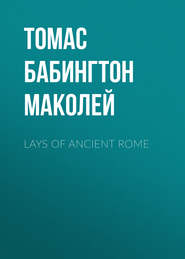По всем вопросам обращайтесь на: info@litportal.ru
(©) 2003-2024.
✖
Critical and Historical Essays. Volume 3
Настройки чтения
Размер шрифта
Высота строк
Поля
Wimbledon Church, Lord Burleigh hears mass at, ii. 67.
Windham, William, his opinion of Sheridan's speech against Hastings, iii. 220 (#x7_x_7_i14).
His argument for retaining Francis in the impeachment against Hastings, 222 (#x7_x_7_i19).
His appearance at the trial, 226 (#x7_x_7_i24).
His adherence to Burke, 233 (#x7_x_7_i37).
Witt, John de, power with which he governed Holland, ii. 525.
His interview with Temple, 529.
His manners, 533.
His confidence in Temple and deception by Charles's court, 538, 539.
His violent death, 542.
Wolfe, General, Pitt's panegyric upon, ii. 249.
His conquest of Quebec, and death, 276.
Monument voted to him, 277.
Wordsworth, William, his independence, i. 595.
A high priest of nature, 597.
Quoted, ii. 235.
Writing, grand canon of, ii. 129.
Wycherley, William, birth and education, iii. 63 (#x2_x_2_i55), 64 (#x2_x_2_i58).
Early plays, 65 (#x2_x_2_i61).
Connection with the Duchess of Cleveland, 66 (#x2_x_2_i63).
Naval adventures, 69 (#x3_x_3_i1).
Marries Lady Drogheda, 70 (#x3_x_3_i2).
Imprisoned for debt, 71 (#x3_x_3_i6).
Poetical work, 73 (#x3_x_3_i8).
Friendship with Pope, 74 (#x3_x_3_i8).
Death, 76 (#x3_x_3_i10).
Character and ability, 77 (#x3_x_3_i12).
Compared to Congreve, 77 (#x3_x_3_i12), 100 (#x4_x_4_i22).
Xenophon, his rank as an historian, i. 250.
Compared to Herodotus, 251.
Yonge, Sir William, ii. 242.
York, Duke of (afterwards James II.), ii. 552.
Anxiety excited by his sudden return from Holland, 580.
Detestation of, 580.
Revival of the question of his exclusion, 582. See James II.
York House, the London residence of Bacon and of his father, ii. 420, 442.
Young, Edward, pensioned by Walpole, i. 722.
Zohak, King, Persian fable of, ii. 640.
notes
1
The Ecclesiastical and Political History of the Popes of Rome, during the Sixteenth and Seventeenth Centuries. By Leopold Ranke, Professor in the University of Berlin. Translated from the German by Sarah Austin. 3 vols. 8vo. London: 1840.
2
The Dramatic Works of Wycherley, Congreve, Vanbrugh, and Farquhar, with Biographical and Critical Notices. By Leigh Hunt. 8vo. London: 1840.
The point is of no importance; and there cannot be said to be much evidence either way. We offer, however, to Mr. Leigh Hunt's consideration three arguments, of no great weight certainly, yet such as ought, we think, to prevail in the absence of better. First, it is not very likely that a young Templar, quite unknown in the world,—and Wycherley was such in 1665,—should have quitted his chambers to go to sea. On the other hand, it would be in the regular course of things, that, when a courtier and an equerry, he should offer his services. Secondly, his verses appear to have been written after a drawn battle, like those of 1673, and not after a complete victory, like that of 1605. Thirdly, in the epilogue to the Gentleman Dancing-Master, written in 1673, he says that "all gentlemen must pack to sea;" an expression which makes it probable that he did not himself mean to stay behind.
3
Mr. Leigh Hunt supposes that the battle at which Wycherley was present was that which the Duke of York gained over Opdam, in 1665. We believe that it was one of the battles between Rupert and De Ruyter, in 1673.
4
The Opinions of Lord Holland, as recorded in the Journals of the House of Lords, from 1797 to 1841. Collected and edited by D. C. Moylan, of Lincoln's Inn, Barrister-at-Law. 8vo. London: 1841.
5
Memoirs of the Life of Warren Hastings, first Governor-General of Bengal. Compiled from Original Papers, by the Rev. G. R. Gleig, M. A. 3 vols. 8vo. London: 1841.
Другие электронные книги автора Томас Бабингтон Маколей
Lays of Ancient Rome




 4.67
4.67












